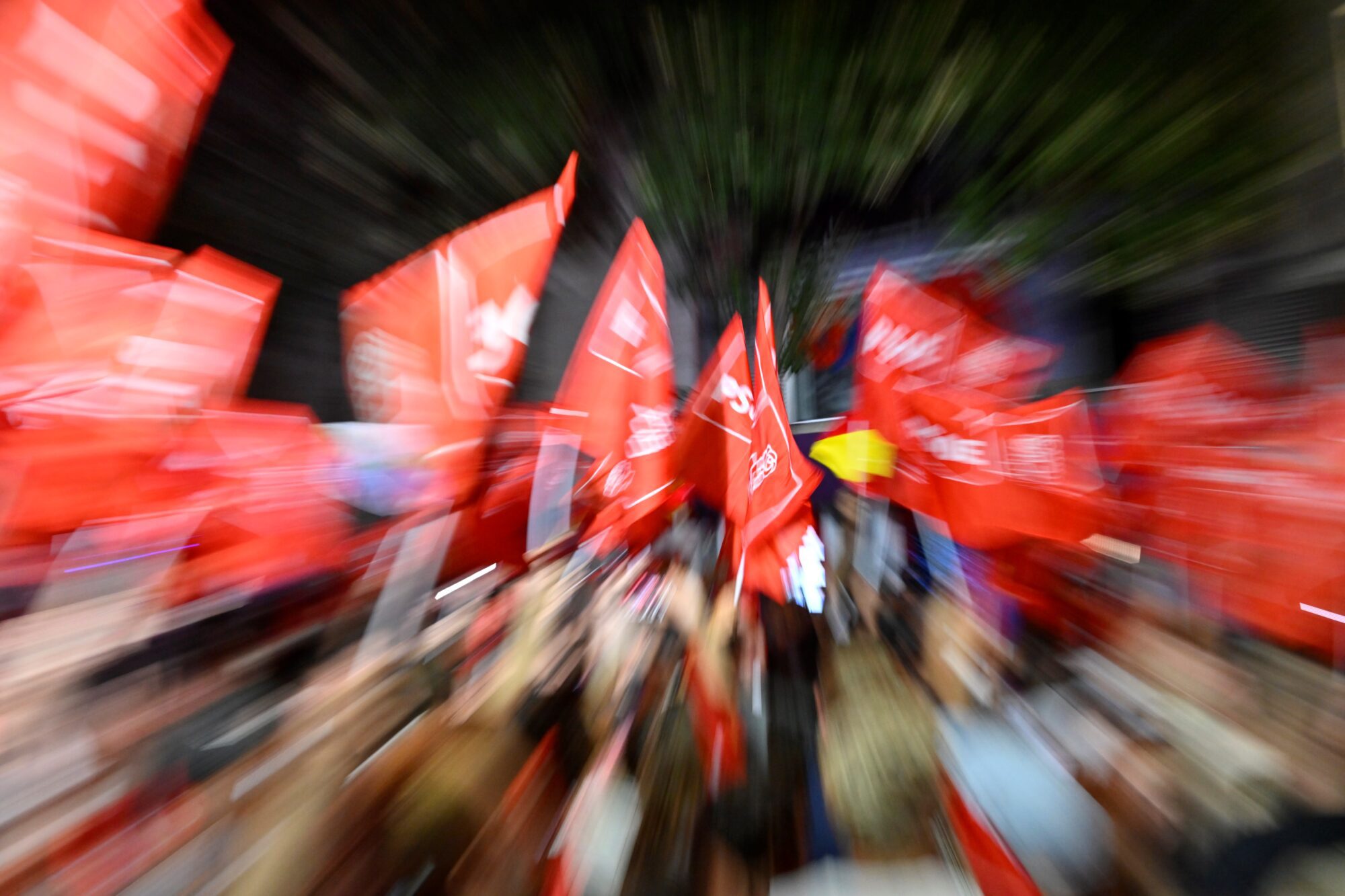
Outside PSOE headquarters in Madrid, July 23rd, 2023.
Political deadlock continues in Spain three days after voters failed to give right-wing parties a majority to form a working coalition in an election that saw a surprising rebound for Spain’s ruling socialist party PSOE and its leader Pedro Sánchez.
Despite substantially increasing both their vote share and parliamentary representation, the conservative Partido Popular (PP) did not collect the 175 seats required in the Spanish Congress of Deputies to form a coalition, as their potential populist partners VOX lost almost half of their existing seats in a shocking turn of events.
While facing a potential challenge to his leadership within his own party, PP leader Alberto Feijóo has broached the possibility of a deal with the PSOE despite previously running on a platform to remove Sánchez from office.
Spain, national parliament election:
— Europe Elects (@EuropeElects) July 24, 2023
Final results
PP-EPP: 33% (+12)
PSOE-S&D: 32% (+4)
VOX-ECR: 12% (-3)
Sumar-LEFT|G/EFA: 12% (n.a.)
ERC-G/EFA: 2% (-2)
Junts-NI: 2%
EH Bildu-LEFT: 1%
PNV-RE: 1% (-1)
BNG-G/EFA: 1%
…
+/- vs. November 2019
➤ https://t.co/uqtqAgTaHO pic.twitter.com/Y5J46xA4RH
Against this background, the leader of VOX, Santiago Abascal, warned of a coalition of “national destruction” between PP and PSOE in his first TV interview after his party’s poor showing, blaming the result on media and opinion poll manipulation as well as the PP’s botched electoral strategy.
Abascal added that the media had been successful in dividing the right electorally as he fingered the polling company, Gad3, which has been accused this week of helping to manipulate the electorate through opinion polls that inflated PP’s numbers.
Following the inconclusive vote, Sánchez was named caretaker prime minister Tuesday, July 25th, as Spain’s monarch King Felipe VI prepared to mediate talks between the rival factions. There is speculation that Sánchez and the socialists may attempt to hold another snap election or even forge a fractious coalition agreement with Catalan and Basque separatists in a bid to maintain power.
Despite many of their leaders being forced into exile in Belgium following the failed independence referendum of 2017, Catalan separatists may become kingmakers under the current electoral map, as Junts, the Catalan nationalist party, offered to do a deal with the PSOE in exchange for amnesty for their leadership.
Hopes for a PP coalition with smaller regional parties and VOX, to make up the numbers needed for a parliamentary majority, diminished earlier this week. Sánchez and his PSOE appear to have far more electoral options heading into negotiations. Sánchez has been in office since 2018 through a series of left-wing coalitions that have often depended on separatist parties, leading to criticism from the Right that he was sacrificing Spanish unity for the sake of power.
